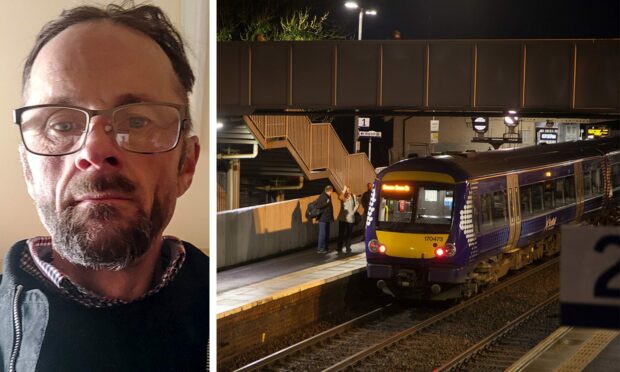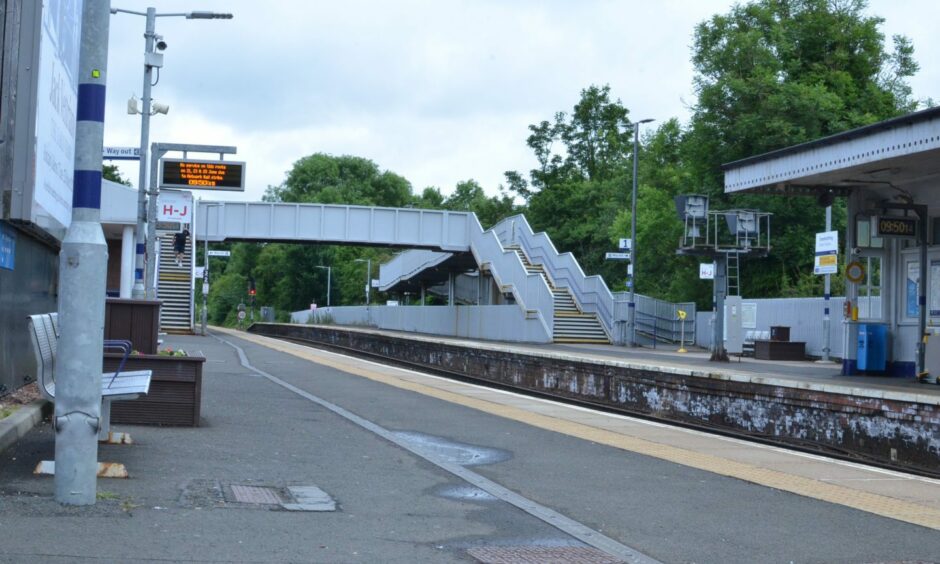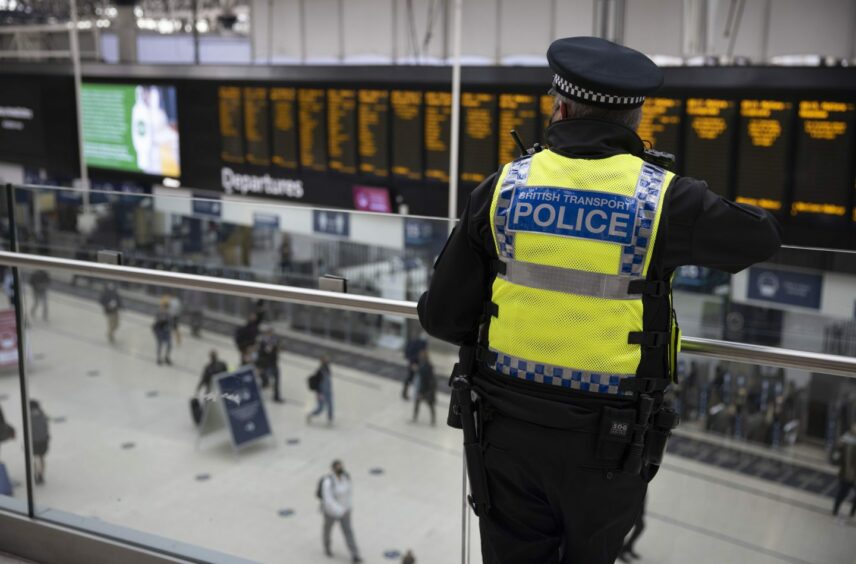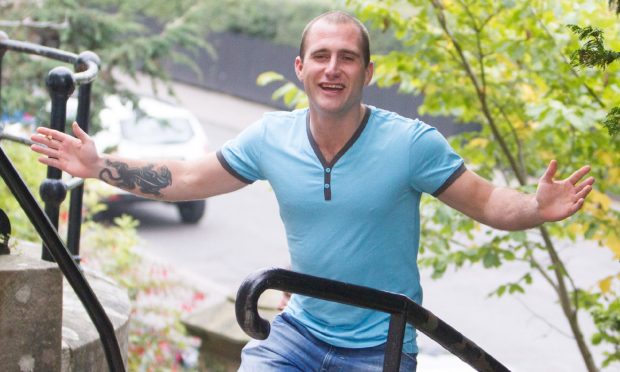Staff at a Fife train station where a “tormented” ScotRail worker assaulted a teenage girl have suffered among the highest levels of verbal abuse, antisocial behaviour and vandalism in Scotland.
ScotRail statistics show the highest number of incidents of verbal abuse against employees between April 2022 and January 20 this year were at Inverkeithing train station.
The Fife station had 29 antisocial incidents in total – joint sixth highest in Scotland – with only Edinburgh Waverley (32) recording more in the east of the country.
Vandalism reports at Inverkeithing also number among the highest in the country.
The figures emerge as Charles Algeo, a former ScotRail train dispatcher at Inverkeithing, told The Courier he was taunted “almost daily” for about a year by youths, including a 15-year-old girl with whom he finally lost his temper, landing him in court on an assault charge.
Dunfermline Sheriff Court heard Mr Algeo punched the teenager after she followed him and kicked out towards his leg as he walked away from an altercation.
He was fined £500 by a sheriff after admitting the assault, which took place on May 16 last year.
He lost his job but feedback to The Courier from the public and colleagues suggested his actions were understandable.
‘Tormented’ by teens
The 52-year-old told The Courier the “red mist descended” that day and he became “overwhelmed” with guilt in the aftermath.
He said: “I did not handle it as best as I’d have liked because we are all human at the end of the day.
“We all like to be that bit more thick-skinned.
“In hindsight I could have walked away but like I say, it’s hindsight”.
Mr Algeo, who worked in the railway industry for more than 34 years, said he was “tormented” by the teenagers.
He said their antisocial behaviour escalated during the pandemic at a time when he was feeling increasingly isolated as a vulnerable person living alone.
Incidents included setting off fire extinguishers, stuffing toilet roll in the sink and turning taps on to flood the floor, pulling flowers out of displays, kicking doors and entering restricted staff areas to use the toilet.
He said it would often happen after 7pm, when the booking office was closed and he would be the only person left on shift.
Mr Algeo said he would receive phone calls from an off-duty colleague to check if he was okay and that other members of staff felt afraid about coming to work.
‘It took its toll’
He reported the abuse and antisocial behaviour through a community intelligence report form, which would be emailed to ScotRail’s safety team but claims nothing appeared to be flagged up or dealt with.
He believes his former employer could have intervened sooner and perhaps moved him to another train station.
Following the assault, Mr Algeo said he spoke to someone at ScotRail who put him in touch with a counsellor, who helped him navigate a difficult period in the run up to the court case.
He added: “I wasn’t in the greatest place (afterwards). It took its toll”.
He has since been applying for jobs and taking an IT course at Fife College and says he has found some closure from the court case and now wants to move on.
Antisocial behaviour
The latest ScotRail figures show there were 2,030 antisocial incidents recorded at train stations across Scotland between April 1 2022 and January 20 this year.
Of these, 957 were categorised as vandalism or antisocial behaviour while 165 involved verbal abuse of ScotRail employees and 55 were assaults on employees.
Other types of incident included fires, trespassing and passenger assaults.
The stats also show a further 204 antisocial incidents took place on trains in the nine and a half month period.
This includes 68 reports of employee verbal abuse, ten employee assaults and 102 incidents classed as vandalism or antisocial behaviour.
‘Lone working’ a problem
RMT Scotland regional organiser, Mick Hogg, said: “These figures are not surprising and RMT is calling for a change in legislation to make assault against any transport worker a specific offence.
“Lone working is something our members raise with us regularly along with the full or partial closure of ticket offices on stations.
“We need a well-staffed, safe and accessible railway for all.
“The root causes of anti-social behaviour must be tackled through government policy, alongside giving the British Transport Police more powers and more effective legislation that prioritises keeping our members safe at work.
“We will continue to keep the pressure on ScotRail, reminding them they have a duty of care to all their staff.”
ScotRail clampdown
ScotRail did not comment on Mr Algeo’s specific claims but the operator has been taking steps to tackle antisocial behaviour across the network.
It works closely with British Transport Police (BTP) and has one of the largest CCTV networks in the UK, with more than 6,000 cameras monitoring more than 350 stations.
In October 2021 ScotRail introduced a travel safe team which, according to its website, is designed to be a “reactive resource with the ability to quickly focus on emerging hotspots”.
It says the team has targeted a number of stations and routes and has seen a drop in reported events during and after anti-social behaviour exercises.
ScotRail says they have also taken steps to bring in body-worn cameras across the business – currently 320 operational units over 47 locations – and that customers displaying inappropriate behaviour are changing the way they act when they become aware of the cameras.
Across the business, extensive training has taken place to support frontline people in the use of body-worn cameras and the aim is to increase the number of cameras in use.
David Lister, ScotRail Safety, engineering and sustainability director, said: “ScotRail works very closely with British Transport Police to ensure that Scotland’s railway is a safe environment for our customers, and our own people.
“This approach has resulted in a limited number of incidents of anti-social behaviour in more than 700,000 journeys to and from Inverkeithing last year.
The latest FoI figures, which only go as far back as April when ScotRail was transferred into public control and ownership, do not include incidents reported directly to BTP where ScotRail was not advised.















